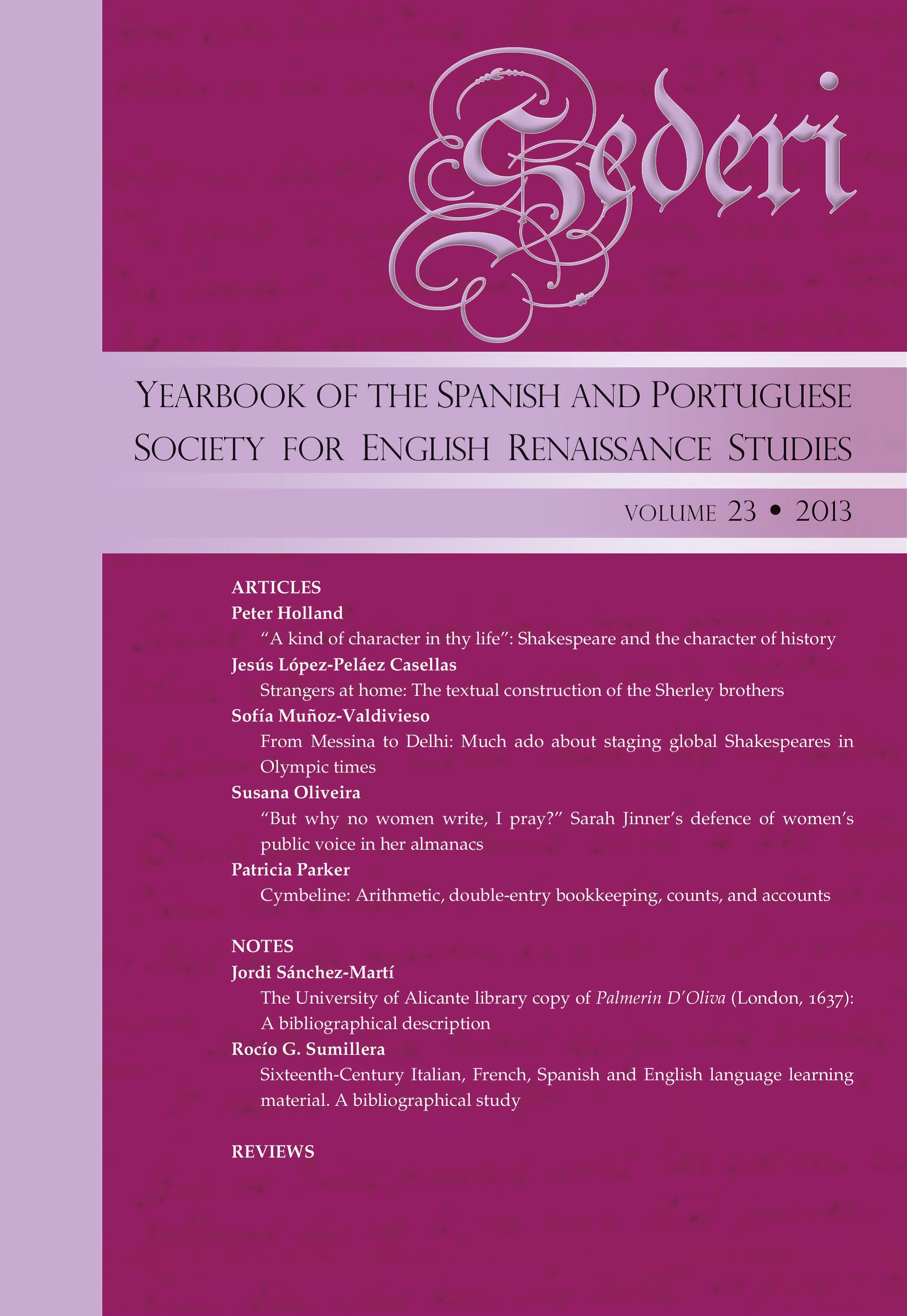Cymbeline: Arithmetic, Double-Entry Bookkeeping, Counts, and Accounts
Keywords:
Cymbeline, Shakespeare, double-entry bookkeeping, Hindu-Arabic numbers, arithmetic, military science, feminist criticism, gender, transvestite theatre, knowledge production, rhetoric, mathematics, history of accounting, economic criticsmAbstract
The importance of commercial arithmetic and double-entry bookkeeping (or “debitor and creditor” accounting) has been traced in The Merchant of Venice, Othello, the Sonnets, and other works of Shakespeare and his contemporaries. But even though both are explicitly cited in Cymbeline (the only Shakespeare play other than Othello to invoke double-entry by its contemporary English name), their importance for this late Shakespearean tragicomic romance has yet to be explored. This article traces multiple ways in which Cymbeline is impacted by arithmetic and the arts of calculation, risk-taking, surveying, and measuring; its pervasive language of credit, usury, gambling, and debt, as well as slander infidelity and accounting counterfeiting; the contemporary conflation of the female “O” with arithmetic’s zero or “cipher” in relation to alleged infidelity; and the larger problem of trust (from credere and credo) that is crucial to this play as well as to early modern England’s culture of credit.
Downloads
Downloads
Published
Issue
Section
License
The copyright holder of the published contributions is SEDERI.The hardcopy and an open-access version of the journal will be published simultaneously. The issues will be available online in the SEDERI website (http://www.sederi.org/yearbook/) and other repositories that have signed an agreement with SEDERI.
The authors who publish with this journal agree to the following terms:
a) SEDERI retains copyright of the essay.
b) If the author wishes to republish or rewrite the essay for another journal, or include the essay published in SEDERI in their personal repositories, or in any other way, they should contact the editors to obtain permission to do so. This will entail citing SEDERI as the original source and sending the editors a copy of the new version, or the link to the website, in case of online publishing.
The author(s) hereby warrant(s) that:
a) The essay submitted for publication is an original creation and does not infringe any copyright or property right of another journal, author or publisher.
b) The essay submitted for publication has not been previously published, whole or in part, and is not being considered for publication elsewhere.
c) Written permission has been obtained for any material from other sources included in the essay submitted for publication.




